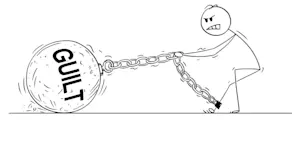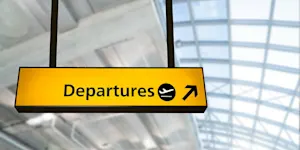What Makes This Word Tick
The word "morass" brings to mind a swampy tangle, a place where you'd best mind your step! It's got that mysterious sound thanks to those double 's's, almost like a whisper. The heart of the word lies in its ability to describe a literal bog as well as a metaphorical quagmire, perfect for when your life feels like a bit of a swamp or tricky entanglement.
If Morass Were a Person…
Picture Morass as that eccentric aunt you see at family gatherings, the one wearing a feathered hat and endless strands of beads. She's the kind of person who could easily get you lost in conversation—or the brambles lining a country lane. She's intriguing, complex, and perhaps just a tad bewildering, with stories looping in and out like tendrils in a hedgerow.
How This Word Has Changed Over Time
Once purely a description of muddy grounds, "morass" has evolved to capture the essence of sticky situations or complicated problems. It's grown rich in metaphor, much like a peat bog accumulating layer upon layer over the centuries. While its physical ties to soggy terrains remain, its metaphorical uses have certainly multiplied.
Old Sayings and Proverbs That Use Morass
While direct references to "morass" in old sayings might be rare, it's likely you'd hear phrases like "caught in a morass," conjuring up images of people or problems sinking deeper into sticky scenarios reminiscent of quicksand.
Surprising Facts About Morass
Did you know that the word "morass" shares etymological roots with the Dutch word "moeras," meaning swamp? Interestingly, it can also evoke imagery of medieval knights on a quest, getting stuck in literal or figurative bogs—an obstacle in adventure tales of yore.
Out and About With This Word
In daily chit-chat, you might hear someone lament how their email inbox feels like a morass of unread messages. It's a handy term for those conversational twists when life's messiness simply takes charge.
Pop Culture Moments Where Morass Was Used
Film noir and detective novels love a good morass, where characters often find themselves bogged down in mysteries as thick as fog. It's the perfect backdrop for stories that twist and turn, ensnaring both character and viewer.
The Word in Literature
Morass could easily find a home in gothic novels, perhaps invoked by authors like Edgar Allan Poe or Mary Shelley. Its resonance fits any narrative thick with suspense or murky details, adding a touch of darkness to the plot.
Moments in History with Morass
Think back to infamous military blunders, such as Napoleon's doomed retreat from Russia or the quagmire of the Vietnam War. Both serve as historical embodied morasses, where ambitions mired down in complication and unforeseen challenges.
This Word Around the World
While the word itself is English, variations exist around the globe. The idea of swamps or entanglements might translate differently but hold a similar connotation—like the French "marais" or the Spanish "pantano."
Where Does It Come From?
The origin of "morass" traces back to the Dutch word "moeras," hinting at its aquatic ancestry. This influence arrives as no surprise considering the water-logged Netherlands, painting a landscape of linguistic borrowings.
How People Misuse This Word
People sometimes confuse "morass" with any unpleasant situation, forgetting its essential ties to being a tangled or bog-like state. A cluttered desk isn't quite a morass—unless papers are truly conspiring against you!
Words It’s Often Confused With
Quagmire: Both denote a difficult situation, but a quagmire emphasizes the sticky predicament more than the tangle.
Mess: A general term for disorder, lacking the specific bog-like implication of "morass."
Swamp: More about wetland and less about entanglement in a problem.
Additional Synonyms and Antonyms
Synonyms for morass include quagmire, tangle, and bog. An antonym might be "order," when speaking of a tidy, well-managed environment.
Want to Try It Out in a Sentence?
Feeling overwhelmed by life's complexities, Janet sighed, "I'm stuck in an emotional morass!"
















